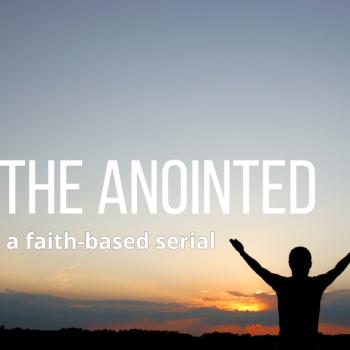
This article kicks off a five-part series that dives deep into the challenges faced by the evangelical movement in America. Stuck in its metaphorical ‘teen years’, this series spotlights the need for the evangelical community to mature spiritually. In this opening piece, we address the evangelical movement’s struggle with its ‘teenage’ identity, urging a collective push towards spiritual maturity by confronting our historical traumas and fears. It’s a call to move from simplistic black-and-white thinking to a faith that embraces complexity and growth.
The evangelical movement and her (mega)churches have often been likened to teenagers in a high school setting, characterized by certain attitudes and behaviors reflective of that tumultuous period in life. But as we strive for growth within our communities and personal faith, it’s essential to consider what it means to mature in our spiritual walk.
To transition from being a child to an adult, it’s essential that you can leave behind childish things. Also as a movement
The apostle Paul provides profound wisdom in 1 Corinthians 13:11, “When I was a child, I talked like a child, I thought like a child, I reasoned like a child. When I became a man, I put the ways of childhood behind me.” This scripture isn’t merely about physical growth but also about spiritual maturity.
So, what does this look like for us evangelicals? To transition from being a child to an adult, it’s essential that you can leave behind childish things. Also as a movement. In other words; you know where you come from, you recognize how you were during your childhood phase, and you don’t carry everything with you into adulthood. Some things you may, or even need to, leave behind. Consider things like diapers, breastfeeding as a baby, the “terrible twos” where ‘No,’ ‘Mine,’ and ‘I do it’ were the key phrases.
The childhood full of naivety, innocence, and fantasy. The teenage years of rebellion, pushing against your parents, and black-and-white thinking as you move towards adulthood. Do you recognize this in your own life?
Origins of the Evangelical Movement: How did the evangelical movement originate?
If we want to mature, it’s crucial first to look back properly. Who were our predecessors? What environment did we originate from? What have we inherited from these predecessors? What’s our history and our baggage?
Who were the founding figures, and what was the climate like when it was conceived? And what influence has this had on today’s evangelical churches?
One of the books I’ve read in my research is ‘The Evangelicals – the Struggle to Shape America‘ by Frances Fitzgerald (highly recommended!).
One could argue that the evangelical movement originated from a significant trauma
In short, you could say that the evangelical movement (as we know it today) was a counter-movement to the emerging liberalism in theological institutions and churches in the US. This had been happening in the US since the early 19th century and was known as the ‘Fundamentalist-Modernist Conflict.’
Suddenly, all questions seemed permissible: “Did Jesus genuinely rise from the dead? Did the miracles really happen? Or are they mythical stories? Can we find the ‘real’ Jesus amidst all the biblical texts? What is the Bible? How is this the Word of God? What does science say about all this?”
The evangelical movement arose from an unbearable feeling; the emerging liberalism. “Never this! We must resist!”
For ‘Bible-believing’ Christians, who believed that the Bible from cover to cover is God’s perfect and inspired Word, this emerging liberalism can be likened to a trauma. We must resist this! There must be a counter-reaction.
Thus, the evangelical movement arose from an unbearable feeling; the emerging liberalism. “Never this! We must resist!”
A Counter-Movement Born from Trauma
One could argue that the evangelical movement originated from a significant trauma. This trauma we call the emerging liberalism in traditional churches, but it encompasses all sorts of unbearable feelings that we’d prefer to suppress, such as uncertainty, doubt, and fear.
The emerging liberalism can be compared to a pendulum that has been pulled all the way up to the left.
What happens when you release this pendulum and it starts to swing back? Does it swing to the middle, or does it keep going to the upper right?
We seem to be frozen in time, stuck in the counter-movement of certainties, answers, and black-and-white thinking
A pendulum always swings back. I believe this has happened in our evangelical movement and in evangelical churches.

The rising secularization and liberalism in traditional churches have made us sort of a counter-movement. That’s not bad at first and is entirely logical.
Faced with a liberal movement full of doubts, you get a counter-movement full of certainties.
Faced with a liberal movement full of questions, you get a counter-movement full of answers.
Faced with a liberal movement full of nuances and shades of gray, you get a counter-movement full of black and white.
A pendulum always swings back. I believe this has happened in our evangelical movement and in evangelical churches
As I wrote earlier, this isn’t necessarily bad. It’s also part of the childhood and teenage phases of a movement. You rebel against your predecessors. But in becoming an adult, you must dare to let go of certain aspects of your childhood and teenage years.
Our Invisible, Unconscious Trauma Keeps the Pendulum High in the Right Corner
The evangelical movement is now about sixty – eighty years old. As a middle-aged movement, you would expect the evangelical movement to mostly behave as an adult, and the pendulum would have settled in the middle. However, contrary to what you might expect, the pendulum still seems to be swinging high in the right corner. An invisible force (not the Holy Spirit) is at work holding this pendulum in its counter-movement position. We seem to be frozen in time, stuck in the counter-movement of certainties, answers, and black-and-white thinking.

This trauma; the unbearable feeling of uncertainty in faith has led us to cling to absolute certainty as overcompensation
I believe our unconscious, collective trauma is responsible for this. Any movement towards the middle feels, subconsciously, like a return to liberalism. Without realizing it, this evokes so much fear and uncertainty that it has become an unbearable feeling. To avoid confronting this feeling, we collectively choose to remain where we are.
And all this happens unconsciously. We are not aware of it and thus cannot anticipate it.
Do Many Evangelical Churches Remain Stuck in a Teenage Psyche?
Because of our trauma, we remain attached to our youthful ways, and perhaps as a movement and as congregations, we even suffer from a teenage psyche. If you look closely, it’s noticeable how adolescent the evangelical movement and some churches are in their expressions and mindset.
In my work as a Christian speaker and storyteller, I visit about forty churches and congregations per year. I see them all. From the most traditional village churches to the large, ‘successful,’ evangelical congregations.
Why do evangelical Christians, as a collective, unconsciously cling so much to certainty?
Within this latter group, the teenage psyche is very apparent. They have a sort of ‘youth event’-like vibe, characterized by a big stage, a slick light show, a flashy band, a successful look, and charismatic stage leadership. But that’s just the surface.
There’s often also a shared interior, with common traits:
- a strong black-and-white mindset,
- a conviction in their own (theological) correctness,
- a lack of willingness or ability to ask genuine questions,
- a sensitivity to peer pressure,
- a continual adaptation of the individual to the group’s expectations.
Perhaps this is precisely how teenagers behave in high school!
Our Development Towards Maturity Blocked
Why do evangelical Christians, as a collective, unconsciously cling so much to certainty?
This has everything to do with our past. A child born into a very uncertain environment is likely to go through life as an adult with a dominating sense of absolute certainty. This is called overcompensation.
Similarly, the evangelical movement arose from an unbearable feeling of uncertainty. Everything that the liberal current stood for was synonymous, in our eyes (rightly or wrongly), with uncertainty in faith. We could not and did not want to live with this uncertainty in faith. As a counter-reaction, the evangelical movement was born.
This trauma; the unbearable feeling of uncertainty in faith has led us to cling to absolute certainty as overcompensation. Although this has happened unconsciously, it is no less destructive. Without our realizing it, this trauma and fear block our development towards maturity.
This article is the first in a five-part series.
Read the other parts of this serie on the Evangelical movement:
Part 2: Evangelicals In Crisis: Why We Struggle To Be A Mature Movement
Part 3: Please God Strike Evangelicalism On It’s Hip
Part 4: Only By Facing Our Trauma Can The Evangelical Movement Reach Real Fatherhood
Part 5: Why Evangelicalism Needs ‘Limping Courage’ On The Road To Maturity
Have you read some my other articles:
- Three Reasons Why Bible-Believing Christians Don’t Really Exist
- Jesus Dealing With Letters of Complaint: A Parable On Modern Church Leadership
Matt Vlaardingerbroek, a former seasoned church planter and pastor in Holland’s inner cities, brings Bible stories to life through ventriloquism and magic. He’s authored three books, and founded www.creativekidswork.com, providing over 1,500 innovative Sunday school activities worldwide.











